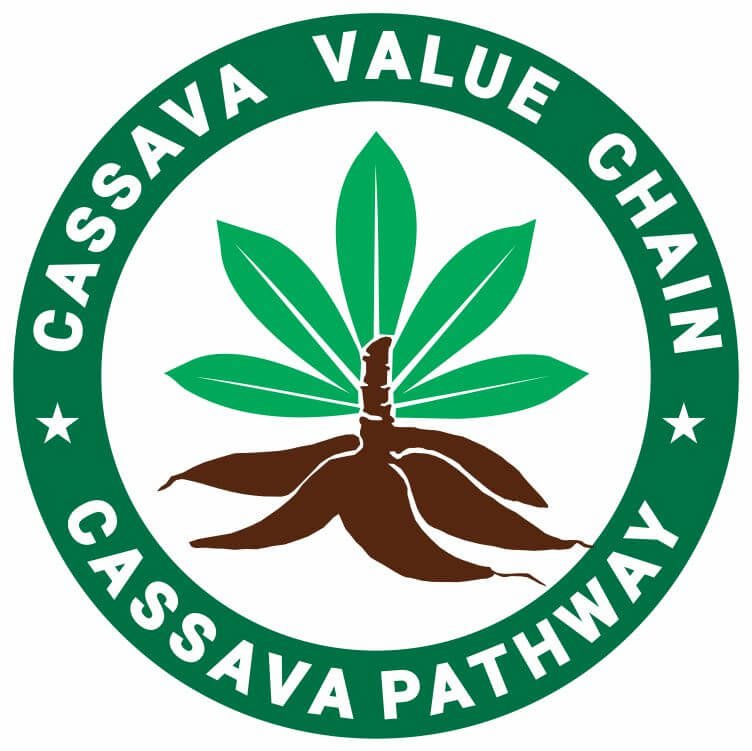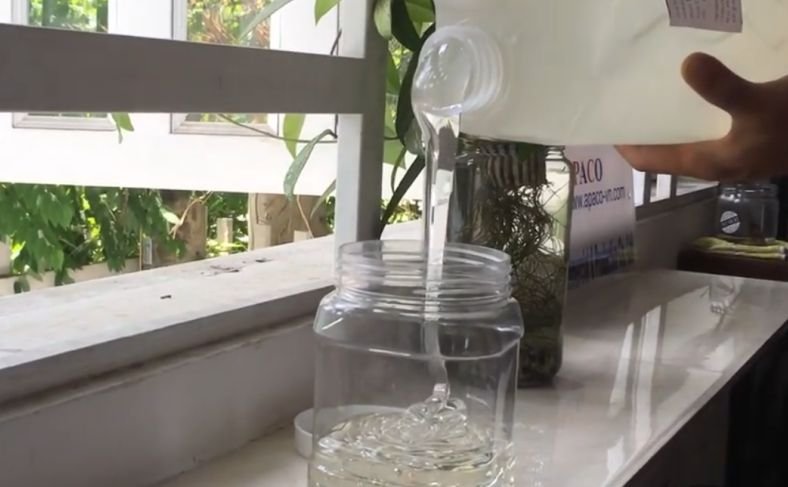What is tapioca syrup, also called cassava syrup, a sweetener derived from tapioca? Learn how it is made, and use it in cooking, baking, and health implications.
Tapioca syrup and cassava syrup are natural sweeteners derived from the cassava plant tubers, commonly used in cooking, baking, and packaged foods as alternatives to corn syrup.
They share similar characteristics, offering a mild sweetness and excellent thickening properties.
Both syrups are produced by extracting starch from cassava tubers and breaking it down into sugar, resulting in a smooth, neutral flavor ideal for a variety of recipes.
Whether you’re making gluten-free treats, sauces, or energy bars, these syrups provide an effective way to add sweetness without the overwhelming taste of other sweeteners.
In this guide, we’ll delve into how these syrups are made, their uses, and the potential health benefits they bring to your diet.
Recommended: Ultimate Guide to Cassava
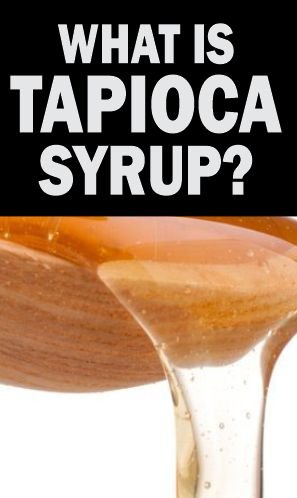
What are Tapioca Syrup and Cassava Syrup?
Tapioca syrup and cassava syrup are natural sweeteners derived from the cassava plant, commonly used as corn syrup alternatives in cooking, baking, and packaged foods.
Though they are regarded as the same in some quarters, they are similar but have key differences in production and use.
Tapioca Syrup
Tapioca syrup is a natural sweetener made from tapioca starch, which comes from the cassava root.
The starch is processed through hydrolysis to break it down into simple sugars, creating a thick, clear syrup.
It has a mild, neutral flavor and is used as a substitute for corn syrup in baking, beverages, and packaged foods.
Tapioca syrup is gluten-free, non-GMO, and often used in vegan recipes.
It’s known for providing moisture, smooth texture, and binding properties in various food products.
It is favored by manufacturers seeking cleaner labels and allergen-friendly ingredients for natural or organic product lines.
Cassava Syrup
Cassava syrup is made directly from the whole cassava root, without first extracting the starch. It’s produced by cooking, filtering, and reducing the root’s juice into a syrup.
This process allows more of the root’s natural nutrients to remain, giving cassava syrup a slightly richer flavor than tapioca syrup.
Like tapioca syrup, it is gluten-free, vegan, and used as a natural sweetener.
Cassava syrup works well in health-focused and allergen-friendly foods.
It’s used in baked goods, cereals, bars, and beverages.
While similar to tapioca syrup in function, cassava syrup is less processed and may appeal to consumers seeking whole-root alternatives.
How They Differ
Cassava syrup and tapioca syrup both come from the same plant: the cassava root. But they differ in how they’re made and what they contain.
Cassava syrup is made from the whole root.
It keeps more of the natural plant content, giving it a slightly richer taste and darker color. It’s less processed and may retain some natural nutrients.
Tapioca syrup, on the other hand, is made by extracting the starch from cassava first.
That starch is then broken down into sugars.
The result is a clearer, more neutral-tasting syrup with a smoother texture, often used in commercial food products.
Related Posts
Can Cassava Help with Weight Loss?
How to Make Crunchy Cassava Chips
Boba Pearls without Tapioca Starch
Altered Tapioca Starch and Industry Applications
Industrial Application of Cassava Starch
Everything to Know about Cassava in the United States
What is Organic Tapioca / Cassava Syrup?
Organic cassava syrup is made from cassava roots grown without synthetic pesticides, herbicides, or GMOs. It follows strict organic farming standards and usually carries certifications like USDA Organic.
This makes it a good option if you want clean-label ingredients in your food products.
How it Differ from Regular Cassava Syrup
Compared to regular cassava syrup, the differences are mainly in the farming and processing methods:
- Farming: Organic cassava is grown without chemical inputs, while regular cassava may come from conventional farming.
- Certification: Organic syrup is verified through third-party certifications. Regular syrup may not go through the same checks.
- Labeling: Organic options support clean-label products. Regular syrup may not meet those requirements.
- Cost: Organic syrup usually costs more due to its farming and processing standards.
Taste and nutrition are similar, but if sourcing matters to you, organic cassava syrup gives you more control and peace of mind.
Organic tapioca syrup is also known by several other names, including:
- Cassava syrup
- Tapioca malt syrup
- Tapioca sweetener
- Cassava sweetener
Tapioca Syrup Vs Other Syrups and Sweeteners
While this article treats tapioca syrup and cassava syrup as the same, here is a post making clear the slight difference between the two.
Let’s now go ahead and see how tapioca syrup is different from other available syrups:
Tapioca Syrup vs Corn Syrup
- Organic cassava syrup has a lower glycemic index than corn syrup, meaning it doesn’t cause blood sugar spikes as quickly.
- It is often considered a healthier alternative to corn syrup due to its natural origins and lack of artificial ingredients.
Organic Cassava Syrup Vs Maple Syrup
- Organic cassava sweetener has a milder flavor compared to the distinct taste of maple syrup.
- While maple syrup contains some nutrients like manganese and zinc, tapioca syrup is virtually devoid of vitamins and minerals.
Tapioca Syrup Vs Honey
- Both organic cassava and honey syrup are natural sweeteners, but honey contains trace amounts of pollen, enzymes, and other compounds that give it unique health properties.
- Organic tapioca sweeteners are suitable for vegans, while honey is not.
Differences Between Cassava Syrup and Tapioca Starch
While both tapioca syrup and tapioca starch originate from the cassava root, they serve different purposes and have distinct properties:
Composition
Tapioca starch, also called tapioca flour, is primarily composed of carbohydrates and is used as a thickening agent in cooking and baking.
In contrast, cassava sweetener syrup is a liquid sweetener made up of various sugars, including glucose and maltose, resulting from the hydrolysis of starch.
Usage
Tapioca starch is often used in recipes to thicken sauces, soups, and puddings, while tapioca syrup is utilized as a sweetener in products like granola bars, ice creams, and beverages.
Nutritional Profile
Organic cassava sweetener generally has a lower protein content compared to glucose and other grain-based syrups, which can enhance shelf life and reduce the likelihood of spoilage.
Also, it contains fewer calories and carbohydrates than traditional sugars, making it a healthier alternative for many consumers.
Benefits of Organic Cassava Syrup
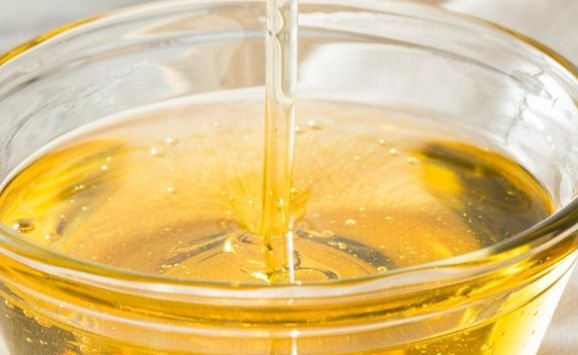
1. Natural and Non-GMO
Cassava sweetener’s natural origins and the fact that it is both non-GMO and gluten-free make it a healthy replacement for conventional sweeteners, such as corn syrup, especially for those apprehensive about consuming unhealthy ingredients.
2. Mild Flavor
Its mild flavor profile allows it to blend seamlessly into recipes without overpowering other ingredients, making it a preferred choice for food manufacturers striving for cleaner labels and simpler ingredient lists.
3. Vegan-friendly
Tapioca sweetener provides functional sweetness and benefits as a vegan ingredient.
It enhances texture, binds, and retains moisture in foods, improving both texture and shelf-life, making it essential in modern food processing.
The Production Process of Tapioca Syrup
The journey of tapioca sweetener begins with the cassava tuber.
The production process starts with harvesting the cassava roots from the ground.
Once harvested, the roots are thoroughly cleaned and then processed into starch.
After this, the starch undergoes hydrolysis, a chemical process where water breaks down its bonds. This can be achieved through two methods:
- Enzymatic Hydrolysis: In this method, specific enzymes are added to the cassava starch, which further breaks it down into simpler sugars.
- Acid Hydrolysis: Alternatively, the starch can be treated with acids to achieve a similar breakdown.
The duration of the hydrolysis procedure determines the sweetness of the resulting syrup; longer hydrolysis yields a sweeter syrup.
The final product is a translucent, viscous liquid that serves as a natural sweetener, used in various culinary applications.
Refining and Processing Steps
After the hydrolysis, the syrup may undergo additional refining processes to enhance its purity and flavor.
This can include:
- Filtration: Removing any impurities or undissolved particles to ensure a smooth texture.
- Concentration: The syrup may be concentrated by evaporating excess water, resulting in a thicker consistency.
- Quality Control: Testing for flavor, sweetness, and viscosity to meet industry standards.
The final cassava syrup is characterized by its neutral flavor, making it an ideal sweetener for a wide range of products, from baked goods to beverages, without altering their taste profiles. See the in-depth steps and processes of tapioca syrup production.
Environmental Impact of Tapioca Sweetener Production
Environmentally friendly practices in tapioca syrup production are increasingly adopted.
These include the recycling of water used in the washing and extraction processes, as well as utilizing energy-efficient technologies to minimize carbon footprints.
Additionally, some producers employ organic farming methods for cassava, avoiding synthetic fertilizers and pesticides to promote sustainable agriculture.
The meticulous production process of tapioca syrup ensures that it meets the culinary and health demands, providing a versatile and natural sweetening option for various applications.
Tapioca Syrup in the Cassava Value Chain
Syrup for tapioca is a valuable byproduct derived from cassava processing.
It plays an important role in the cassava value chain by providing an alternative sweetener for various food and beverage products.
With its unique properties, cassava sweetener syrup is used as a thickening agent, sweetener, and emulsifier in a wide range of applications such as confectionery, baked goods, and beverages.
Its economic value lies in its universal usage owing to its healthier characteristics than others, affordability, and sustainability.
By utilizing the syrup in the cassava value chain, producers can maximize the utilization of the crop, reduce waste, and create additional revenue streams, contributing to the overall economic viability of the industry.
Properties and Uses of Cassava Syrup

Culinary Applications
Baking and Cooking: Cassava sweetener is an excellent substitute for sugar in baking recipes as it adds a healthier, delightful sweetness to cakes, cookies, and other baked goods while improving their texture and binding properties. The syrup can also be used in dishes, such as marinades and glazes, to improve the sweetness that cancels out flavors.
Sweetening Beverages and Desserts: It is a popular choice for sweetening beverages, including boba pearls, smoothies, juices, and teas. The mild flavor complements other ingredients without overpowering them. It’s a healthier alternative for sweetening desserts like puddings, ice creams, and sauces.
Thickening and Binding Agent: Tapioca syrup thickens sauces, soups, and gravies without altering flavor. It also acts as a binding agent in dishes like granola bars, helping to hold ingredients together.
Role in the Food Industry
Cassava syrup improves texture and viscosity in foods like ice cream and puddings, providing smooth, creamy textures.
Its thickening properties and sustained energy release make it ideal for sports nutrition products, including energy bars and granola.
Popular Recipes and Products
Tapioca syrup can be found in a wide range of recipes and products, including:
- Baked goods: cookies, cakes, muffins, and breads
- Desserts: puddings, ice cream, and sauces
- Beverages: smoothies, juices, and teas
- Sauces and dressings: marinades, glazes, and salad dressings
- Snacks: granola bars and energy bars
Health Implications and Nutritional Profile of Tapioca Syrup
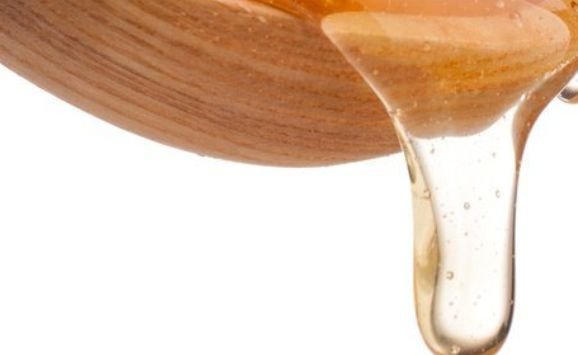
Tapioca syrup offers various culinary benefits; understanding its nutritional profile, potential health benefits, and possible drawbacks is essential for making informed dietary choices.
Allergen-free
Another health boost from tapioca sweetener is its allergen-free composition.
It is free from common allergens such as gluten and soy, making it a safer sweetening choice for those with sensitivities or allergies.
Also, tapioca syrup is non-GMO, which aligns well with the preferences of health-conscious consumers seeking cleaner and more natural food ingredients.
Nutritional Profile
Cassava syrup is primarily composed of carbohydrates, with a significant caloric content. Here are the key nutritional details:
- Calories: Approximately 319 kcal per 100g serving.
- Carbohydrates: About 83.9g per 100g, making it a high-energy food.
- Sugars: Contains various sugars, contributing to its sweetness.
- Minerals: Includes small amounts of essential minerals such as sodium (71mg), potassium (63mg), magnesium (9mg), and calcium (23mg) per 100g serving. These minerals play crucial roles in bodily functions, including fluid balance and muscle contractions.
- Vitamins: Provides trace amounts of B vitamins and vitamin C, which support energy metabolism and immune function, respectively.
Tapioca Syrup Glycemic Index
Its glycemic index is low compared to others, typically ranging from 53 to 58, making it a better option for those looking to control their blood sugar levels.
Foods with a low glycemic index are digested and absorbed more slowly, leading to a gradual rise in blood sugar levels.
This helps to keep steady energy levels and eliminate the risk of spikes in blood sugar.
Tapioca sweetener syrup can be a good choice for people seeking a sweetener with a lower impact on their blood sugar.
Potential Health Benefits of Cassava Sweetener
- Gluten-Free: Cassava sweetener is naturally gluten-free, making it suitable for individuals with gluten sensitivities or celiac disease.
- Less Processed: Compared to refined sugars, cassava syrup undergoes minimal processing, retaining more of its natural properties.
- Energy Source: The high carbohydrate content in cassava syrup provides a quick source of energy, beneficial for athletes and active individuals.
- Digestive Health: Cassava contains resistant starch, which acts similarly to dietary fiber. This can promote gut health by feeding beneficial bacteria and improving digestion.
- Blood Sugar Management: The resistant starch in cassava may help regulate blood sugar levels by slowing the absorption of glucose, potentially benefiting those managing diabetes.
Tapioca Syrup Dangers
Cassava, and by extension tapioca syrup, poses a risk of cyanide poisoning due to the presence of cyanogenic glycosides.
While commercially produced tapioca syrup is generally safe, the risk underscores the importance of sourcing tapioca products from reputable manufacturers who ensure proper processing methods.
Some people may experience allergic reactions to tapioca sweeteners, particularly those with latex allergies, which can lead to anaphylaxis in severe cases.
The carbohydrate content of cassava syrup can also contribute to weight gain if consumed excessively, as it is calorie-dense, and its frequent use as a sweetener can increase overall caloric intake without providing substantial nutritional benefits.
Cassava syrup offers limited nutritional benefits, lacking significant protein, fat, or fiber compared to other sweeteners.
Is Tapioca Syrup Bad for You?
While tapioca sweeteners can be a healthier alternative to traditional sweeteners, they are not entirely without a dark side as has been explained in this article.
Cassava syrup is considered bad for you in excessive amounts due to its high sugar content, which can contribute to weight gain and other health issues if consumed in large quantities.
The syrup is primarily composed of carbohydrates and lacks significant amounts of essential nutrients, fiber, and protein. Consuming it in excess may contribute to weight gain and other metabolic issues over time.
However, when used in moderation as part of a balanced diet, tapioca syrup can be a suitable option for those seeking a natural sweetener. As with any food, moderation and individual dietary needs should be considered.
Is Tapioca Syrup Healthy?
Tapioca sweetener is considered healthier than some other sweeteners like corn syrup, and may contain some beneficial nutrients.
Tapioca syrup can be part of a healthy diet when used in moderation. It is a gluten-free, vegan sweetener that offers a mild flavor and thickening properties.
Unlike some sweeteners, it lacks significant nutritional benefits such as protein, fiber, or vitamins.
While it is a better option compared to highly processed sugars, it should be used sparingly and balanced with other nutrient-dense foods for overall health.
What is Tapioca Syrup Made Of?
Tapioca sweetener primarily consists of carbohydrates, mainly in the form of glucose and maltose, which give it its sweet taste and viscous texture. It contains minimal amounts of protein, fat, and fiber.
The syrup is derived from the hydrolysis of tapioca starch, a carbohydrate-rich substance, and the process breaks down the starch into simpler sugars, resulting in a syrup with a moderate glycemic index.
It generally lacks significant vitamins and minerals, making it a calorie-dense sweetener with limited nutritional benefits.
Is Tapioca Syrup Vegan?
Cassava syrup is generally considered vegan as it is made from plant-based ingredients and does not involve the use of animal products in its production.
The extraction of tapioca syrup involves hydrolyzing the cassava starch using enzymes or acids, which are typically plant-based or synthetic, making the final product suitable for a vegan diet.
As it does not contain any animal-derived ingredients or byproducts, cassava syrup is an appropriate sweetener for those following a vegan lifestyle.
Can Dogs Have Cassava Syrup?
Dogs should not consume tapioca syrup. While tapioca itself is not toxic to dogs, tapioca syrup is high in sugar and carbohydrates, which can lead to weight gain, dental issues, and gastrointestinal problems in pets.
Additionally, the syrup lacks nutritional benefits for dogs and can disrupt their balanced diet. Excessive sugar intake can also contribute to diabetes and other health issues in dogs.
It is best to avoid giving dogs sugary or processed human foods and stick to treats and foods specifically formulated for canine nutrition.
Is Tapioca Syrup Sugar?
Yes, tapioca syrup is a form of sugar. It is a liquid sweetener and is hydrolyzed to produce glucose and maltose, as mentioned earlier above.
These sugars give tapioca sweetener its sweet taste and viscous texture. While it is less processed than some other sweeteners, it is still high in carbohydrates and calories, similar to other sugars.
It has a slightly high glycemic index, meaning it can cause rapid spikes in blood sugar levels when consumed in high quantities.
Although it is used in many foods as a sweetener and thickener, it should be consumed in moderation to avoid excessive sugar intake.
Frequently Asked Questions
What is cassava syrup?
Cassava syrup is a sweetener made from cassava roots, rich in carbohydrates and used as an alternative to traditional sugars.
How is cassava syrup produced?
Cassava syrup is made by extracting starch from cassava, converting it into sugar through enzymatic hydrolysis, and then concentrating the liquid into syrup.
What are the health benefits of cassava syrup?
Cassava syrup offers energy, is gluten-free, and contains essential vitamins and minerals, making it a healthier sweetener choice compared to refined sugars.
Can cassava syrup be used in cooking and baking?
Yes, cassava syrup can replace sugar in various recipes, adding sweetness to baked goods, sauces, and beverages while providing a unique flavor profile.
Final Word from Cassava Pathway
Tapioca syrup, also known as cassava syrup, is a natural sweetener obtained from cassava tubers through a process that involves extracting and purifying the starch from the cassava root.
It is a popular ingredient in cooking and baking due to its soft flavor and thickening properties.
It is considered a healthier alternative to corn syrup and maple syrup, with a lower glycemic index and fewer calories.
Additionally, tapioca syrup is allergen-free, gluten-free, and vegan-friendly, making it suitable for a wide range of dietary needs.
However, it should be consumed in moderation due to its high sugar content, which can contribute to weight gain and other health issues if consumed in excess.
References:
- https://isitclean.org/ingredient/tapioca-syrup/
- https://www.healthshare.com.au/questions/47210-is-tapioca-syrup-better-than-maple-syrup/
- https://www.cagummybears.com/blogs/gummy-blog/top-5-differences-between-tapioca-syrup-and-corn-syrup
